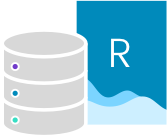25
Nov 2015
Paul Fehlinger Lead Discussant on Internet Openness at OECD/CIGI Event
I&J contributed
December 3, 2015
On November 25, 2015, the OECD and the Centre for International Governance Innovation held a conference in preparation for the 2016 OECD Ministerial Meeting on the Digital Economy. Paul Fehlinger, the co-founder of Internet & Jurisdiction, was invited to be the Lead Discussant on the nexus “Internet Openness and Society.”
The Economic and Social Benefits of an Open Internet
In his speech, Mr. Fehlinger stressed the difficulties we encounter already with measuring and quantifying the benefits of the Internet on national economies and trade. Given the remarkable impact the commercial Internet has had since its widespread adoption in the 1990s, it can be difficult to realize the range of benefits an open Internet offers. This is partly rooted in the fact that most people cannot imagine an Internet that is not cross-border by default. However, the cross-border nature of online spaces and services is not an immutable feature. Jurisdictional tensions around the world are observable, and in the absence of workable mechanisms to ensure interoperability, current trends point towards a progressive re-nationalization and fragmentation of cyberspaces. This is why it is important to measure the benefits of both the economic and social impacts of the cross-border nature of the Internet.
The Internet has changed the fabric of social fabric across borders. In his intervention, Paul Fehlinger highlighted eight social benefits of the cross-border Internet:
- Unprecedented access to information through search
- Augmented personal communication “regardless of frontiers” through fluid and frictionless online tools that enable the fulfillment of Article 19 of the Universal Declaration of Human Rights
- Facilitation of sharing and pooling of resources
- Structuration of social communities of unprecedented size and across borders
- Enabling of not-for-profit activities that create social value (MOOCs, wikis etc.)
- Collective intelligence to improve quality of life and knowledge (crowd-curation, rating, comments, forums etc.)
- Open data and non-commercial online services with public service functions (earthquake detection, weather apps etc.)
On November 25, 2015, the OECD and the Centre for International Governance Innovation held a conference in preparation for the 2016 OECD Ministerial Meeting on the Digital Economy. Paul Fehlinger, the co-founder of Internet & Jurisdiction, was invited to be the Lead Discussant on the nexus “Internet Openness and Society.”
The Economic and Social Benefits of an Open Internet
In his speech, Mr. Fehlinger stressed the difficulties we encounter already with measuring and quantifying the benefits of the Internet on national economies and trade. Given the remarkable impact the commercial Internet has had since its widespread adoption in the 1990s, it can be difficult to realize the range of benefits an open Internet offers. This is partly rooted in the fact that most people cannot imagine an Internet that is not cross-border by default. However, the cross-border nature of online spaces and services is not an immutable feature. Jurisdictional tensions around the world are observable, and in the absence of workable mechanisms to ensure interoperability, current trends point towards a progressive re-nationalization and fragmentation of cyberspaces. This is why it is important to measure the benefits of both the economic and social impacts of the cross-border nature of the Internet.
The Internet has changed the fabric of social fabric across borders. In his intervention, Paul Fehlinger highlighted eight social benefits of the cross-border Internet:
- Unprecedented access to information through search
- Augmented personal communication “regardless of frontiers” through fluid and frictionless online tools that enable the fulfillment of Article 19 of the Universal Declaration of Human Rights
- Facilitation of sharing and pooling of resources
- Structuration of social communities of unprecedented size and across borders
- Enabling of not-for-profit activities that create social value (MOOCs, wikis etc.)
- Collective intelligence to improve quality of life and knowledge (crowd-curation, rating, comments, forums etc.)
- Open data and non-commercial online services with public service functions (earthquake detection, weather apps etc.)


